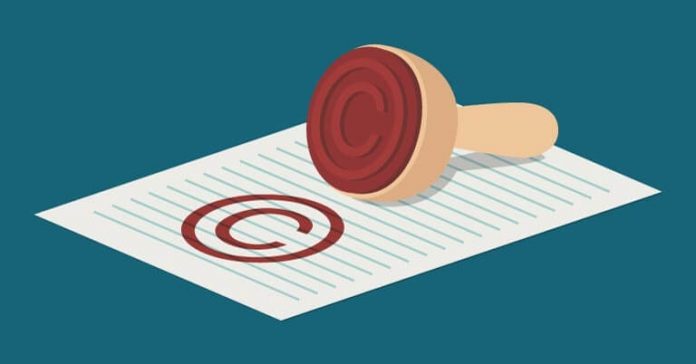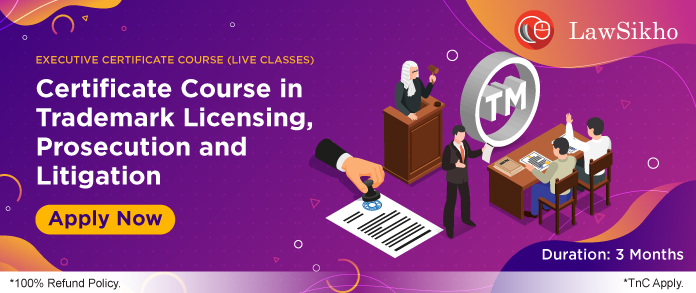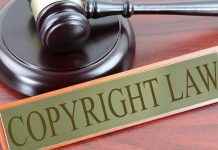This article is written by Ronika Tater, a student of University of Petroleum and Energy Studies, School of Law. In this article, she discusses the establishment of copyright protection, the infringement of copyright on the internet with the help of various case laws and also its role in the Indian economy by showing some light in the present scenario
Table of Contents
Introduction
Any tangible format of literature, music, sound recording, audio-visual, art, architectural or some intellectual work is some original creations that are automatically protected by copyright. It means that the owner, creator, author or artists of these works have exclusive rights to make copies, distribute, adapt and derive from his or her material. However, it is not legal for anyone to use the original work of the owner without its expressed permission, otherwise, it would lead to copyright infringement and may be liable or sued for the violation of copyright works under the Copyright Act.
What is copyright infringement
Copyright is an automatic right which exists without applying, and only registered design requires registration, unlike a patent, which is a legal right for invention. An owner of a copyright has the exclusive right to reproduce, derive copies, modify, adapt, display his or her work. A copyright infringement occurs when a copyrighted work is reproduced, distributed, publicly displayed, or drive work without the permission of the copyright owner. The court has established grounds for the owner to establish a copyright infringement by any person as below-mentioned:
- Ownership of a valid copyright;
- Violation of his or her exclusive rights under the statutory provisions.
Copyright includes a bundle of exclusive rights conferred in the owner of the copyright as per Section 14 of the Copyright Act. these rights can be exercised only by the owner of the copyright by the virtue of duly licensed or registered. The following are the rights available to anyone for the registration of his or work to become the bonafide owner of the copyright:
- Right to reproduce the work;
- Right to issue copies of the work;
- Right to perform the work in public;
- Right to make a cinematographic film or sound recording;
- Right to translate the work; and
- Right to adapt or modify other works from it.
Advantage of copyright protection
Copyright is a form of intellectual property governed under the Copyright Act, 1957 to protect the creator of original works of authorship. Under Section 13 of Copyright Act, 1957, copyright prevails in original literary, dramatic, musical and artistic works, cinematograph films and sound recording. Hence, it means that copyright protects the expression of ideas and not the idea, unlike patents. The main advantages of copyright protection are that protection is available in several countries across the world, however, the work is first published in India by a member of the Berne Convention. Hence, there is no need to formally apply for protection, it is available to works published in India all across several countries.
Also, the government of India by the International Copyright Order, 1999, extended copyright protection to works first published outside India. Though the copyright protection commences the moment a work is expressed but its registration is optional at the hands of the creator. However, it is beneficial for the owner to avoid any future consequences to obtain registration for better protection. Copyright registration not only confers any right but it provides a prima facie proof of an entry of the owner’s genuine work in the Copyright Register maintained by the Registrar of Copyrights.
Ownership of copyright under Indian Judiciary
The ownership of the copyright may differ from people with different circumstances. The response of the Indian Judiciary plays a vital role to determine copyright protection of the work. In the case of Godrej Soaps Private Limited v. Dora Cosmetics Company, the Delhi High Court held that during his or her employment the carton was designed for valuable consideration by the employee and on the behalf of the plaintiff and the defendant was not able to provide any evidence to prove its claim. Hence, the plaintiff was the legal owner of the copyright of the cartoon and its logo.
In Eastern Book Company v. Navin J. Desai, a question was raised whether there is copyright in the case of reporting of the judgement of a court. It was observed that as per Section 2(k) of the Act, it’s not expressly denied by the provision that a work published under the guidance and control of any court, tribunal or other judicial authority in India is a Government work. However, under Section 52(1)(q) of the Act, reproduction of a judgement of the court is an exception to the infringement of the copyright as the order and the judgements of the courts are published in the public domain to be available for the benefit of the general public. Not only is it the government work, but no one can claim copyright merely because he or she published it first.
Infringement of copyright
A copyright owner cannot enjoy his rights on the work unless the infringement is dealt with strictly by the courts. Under Section 51 of the Copyright Act, it states the instance when copyright is infringed and it includes doing any act by one who is not authorized by the owner with the right to do or permit any place for profit for infringement of the copyright is also under this Act.
In the case of MRF Limited v. Bommidi Radhakrishna Reddy, 2018, where the defendant continued to use the registered trademarks of the plaintiff as well as the artistic works in the marks even after the termination of the dealership. When it comes to the knowledge of the plaintiff, he sued the defendant on the same grounds for damages for infringement of trademarks as well as infringement of copyright considering that the defendant has virtually continued to use the mark and not even a deceptively similar mark but the original mark of the plaintiff. Hence, it was held that the plaintiff is the rightful owner and the defendant is liable to pay the costs under Section 35-A of the amended Code of Civil Procedure, 1908 as amended by the Commercial Courts, Commercial Division and Commercial Appellate Division of High Courts Act, 2015.
In the case, Super Cassettes Industries Private Limited v. Sky Vision Digital Cable Network, 2015, a question was raised whether the defendant has breached the copyright of the plaintiff. The plaintiff who is one of the renowned music companies in the country and owner of a large repertoire of copyrighted works consisting of cinematographic films, sound recordings, and giving license to various broadcasting organisations, Television Channels, FM Radio Stations for the use of its copyrighted works. On the knowledge about the unauthorized and unlicensed use of its copyrighted works by the defendant cable television network, regardless of the notice being reserved for the unlicensed use of plaintiff’s video songs no reply was served. The court held that the defendant acts infringed the plaintiff copyright and is liable to pay the cost of a subscription with license fee on each and shall also include the lawyer’s fees as well as compensation.
Infringement of copyright on the Internet
Under Section 51 of the Act, the inclusion of the word any place gives a wide scope to interpret internet pages and materials through intermediaries as a place where infringement can happen. Intermediaries, as defined under the Information Technology Act (IT Act), states that any person who on behalf of another person receives, stores or transfers that record or provides any service concerning that record. It includes major websites as google, yahoo, youtube, Facebook, Twitter etc. In the case of Super cassettes v. Myspace, it was discussed that an explanation of different standards of knowledge and standard of proof is required to prove infringement of copyright act, as under the copyright act a relatively lower quantum of knowledge with the phrase “knowingly infringes or abets the infringement of”. While on the other hand, the Information Technology Act requires a much higher standard of knowledge as stated under the definition of “actual knowledge” to ascertain liability under Section 79(3) of the IT Act.
Hence, there is a conflict to establish the extent of knowledge of the intermediaries so the role of Indian Judiciary should come up with a clear definition to avoid any future conflicts of interest. In the case of Christian Louboutin Sas v. Nakul Bajaj & Ors, 2018 also, the concept of constructive knowledge and active knowledge is discussed. In this case, it was held that Section 79 and 81 of the IT Act and Section 51 (a)(ii) of the Copyright Act should be given harmonious interpretation and it should be read together to avoid any conflict of law as in the present scenario both traditional copyrights are guaranteed and on the other hand, digital economy and newer technologies are mentioned. Hence, Action 81 does not exclude the positive defence of safe harbour for an intermediary in the case of copyright infringement and section 5(a)(ii) of the Copyright Act, confers actual knowledge in the case of internet intermediaries and not general awareness and to impose the liability on an intermediary condition conferred under Section 79 of the IT Act have to be filled.
Also, it’s pertinent to note that in the case of internet intermediaries to claim interim relief specific and actual content which has been infringed should be specified. In the case of Star India Private Limited v. Department of Industrial Policy and Promotion, 2018, to protect the rights of the broadcasters, it is best to give both the statute of Telecom Regulatory Authority of India Act, 1997 (TRAI Act) and Copyright Act harmonized interpretation as the TRAI Act, being a statute to serve the interest of both broadcasters and consumer to the extent it is inconsistent with the Copyright Act which protects the property rights of broadcasters. The former should give way to the latter to avoid any conflict of interest.
Advantage and disadvantage of copyright law
The following are the advantage of copyright law:
- Unlike other intellectual property rights, it has an essentially longer statutory life for example the life of the creator in addition to 70 years.
- The owner is protected against the infringer or constitutional harms.
- Compensation is less demanding compared to that of a patent case.
- It is feasible to enrol and not time-consuming.
- Owner gains security and proprietorship over his copyrightable works and also insurance.
- Copyright work is available in several countries across the world, without formally applying.
One of the main disadvantages of copyright law is that copyrights only secure the expression of the idea, not the idea. The patents secure the idea. For instance, copyright law secures how the inventor expresses his or her innovation in a particular article but the original innovation expressed in the article is not copyright assurance. Hence, the distinction between copyright and patent is unpretentious.
Future of copyright law in India
With the advent of technology laws are changing, theories are implemented in India to protect the interest of copyright owners and help in shaping policy and updating the policymakers diligently to optimally enforce violations of their rights. In the present scenario, India is the biggest publishing market around the world and is striving hard to come up and establish the necessary changes for economic growth.
Conclusion
The main aim of copyright law is to protect the interest of the rightful owner as to when a person publishes anything, he expresses his opinion into something tangible and in a democratic society, the same needs to be appreciated, upheld, protected and given value otherwise, the whole idea of a democratic society will lose its value. Hence, an infringement of copyright is an enormous loss to emerging economies, especially a developing country like India, so every attempt shall be made to protect such loss by implementing strong policy or Online Copyright Protection Law, which meets the growing demand in this technology era.
References
- The Copyright Act, 1957.
- Information Technology Act, 2000.
- Berne Convention for the Protection of Literary and Artistic Works, 1886.
LawSikho has created a telegram group for exchanging legal knowledge, referrals and various opportunities. You can click on this link and join:
 Serato DJ Crack 2025Serato DJ PRO Crack
Serato DJ Crack 2025Serato DJ PRO Crack











 Allow notifications
Allow notifications


